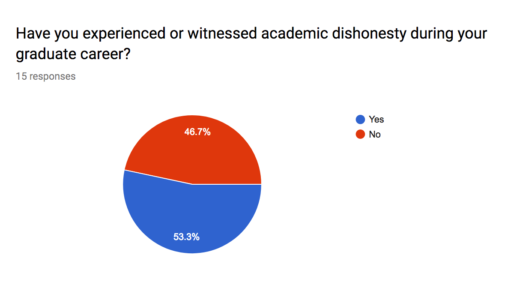Story written by Maggie Todaro, Alexa Stathis, and Lachlan Wright
For anyone who has spent time in academia, whether it be pursuing a degree or a career, scientific integrity is a subject you are sure to come face to face with. The suppression, censorship, distortion, and manipulation of scientific information is as commonplace as it is problematic. Using the 2016 article Academic Research in the 21st Century: Maintaining Scientific Integrity in a Climate of Perverse Incentives and Hypercompetition by Edwards and Roy as an introduction to the issues, EMPOWER trainees engaged in a round table discussion about the systematic risks to scientific integrity. The dialogue emphasized quantitative metrics that measure success, hypercompetitive funding environments, and political pressure are a reality of modern day research. Through the completion of an anonymous survey that asked questions such as “Have you ever witnessed academic dishonesty?”, EMPOWER students were able to see through a more personal lens how much scientific integrity influences the academic experiences of themselves and their peers. More than half of survey participants answered “yes” to that question. Results can be seen in Figure 1.
From funding opportunities, through the peer-review process, to publication, opportunities for dishonesty are present at every step of the way. While the temptation to manipulate evidence for personal gain may be there, a legacy of unethical science will simply destroy public trust and support, stunting scientific progress. After exploring potential reforms to mitigate the effects of corruption, EMPOWER trainees affirm the importance of honesty and self-correction in academia as the primary approach for checks and balances.
